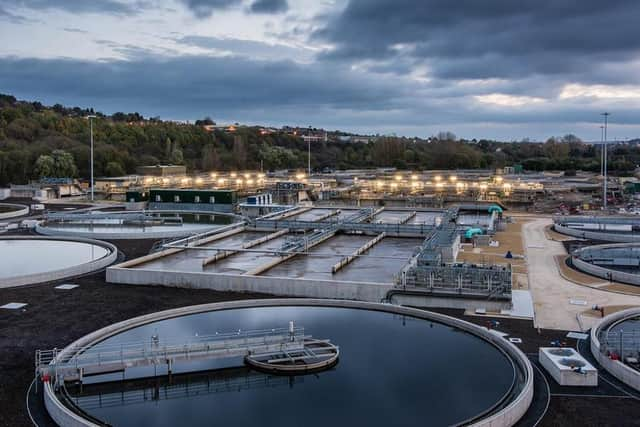Sewage in Sheffield could prove key to spotting coronavirus outbreaks
and live on Freeview channel 276
Samples from sewage treatment works in Sheffield and surrounding parts of South Yorkshire are being checked for evidence of Covid-19, as part of a national programme to detect early signs of a new outbreak.
Yorkshire Water is sampling wastewater from works in Lundwood, Wombwell, Aldwarke, Blackburn Meadows, Woodhouse Mill and Old Whittington to be analysed by researchers at the University of Sheffield.


Advertisement
Hide AdAdvertisement
Hide AdStudies are also being carried out by the Department for Environment, Food & Rural Affairs (DEFRA) on sewage collected from the utility firm’s plants in Hull, Knostrop, Esholt and Dewsbury.
They are looking for fragments of genetic material from Covid-19, which could provide an early indication that the virus is taking hold locally.
Findings from the two projects will better show the prevalance of coronavirus in those areas, it is hoped, including among asymptomatic carriers and those who have yet to show symptoms.
James Harrison, Yorkshire Water’s head of wastewater asset management, said: “We are pleased to be playing a part in the earlier detection of Covid-19 outbreaks in the region and nationally.
Advertisement
Hide AdAdvertisement
Hide Ad“The samples will be tested for markers of Covid-19, which cannot cause infection but do indicate infection within the population. We are still in the early stages of the project, but the data has the potential to uncover new outbreaks before medical testing.”
The work by Yorkshire Water and the University of Sheffield is part of a national Government-led programme, first announced in June, to detect traces of coronavirus in sewage and enable local authorities to act swiftly to suppress outbreaks.
The findings are being shared with the NHS Test and Trace service, enabling public health staff to contact institutions with potential spikes in infection so they can encourage people to get tested or take extra precautions.
The project has already worked successfully in one area in the south west of England, where sewage sampling data showed a spike in traces of coronavirus despite relatively few people there seeking tests.
Advertisement
Hide AdAdvertisement
Hide AdTesting is now taking place at more than 90 wastewater treatment sites around the UK, covering roughly 22 per cent of England’s population, with plans to expand further.
DEFRA has teamed up with the Environment Agency and Joint Biosecurity Centre (JBC) for the programme, with testing being led by the Environment Agency’s Starcross laboratory in Exeter.
Environment secretary George Eustice said: “This is a significant step forward in giving us a clearer idea of infection rates both nationally and locally, particularly in areas where there may be large numbers of people who aren’t showing any symptoms and therefore aren’t seeking tests.
“NHS Test and Trace is able to use the science to ensure local health leads are alerted and can take action.
Advertisement
Hide AdAdvertisement
Hide Ad“We are continuing to look at how this programme can be refined as one of the many measures we’re using to slow the spread of the virus and protect local communities.”
The Government says the World Health Organisation rates the chances of coronavirus being transmitted via sewerage systems as ‘extremely low or negligible’.